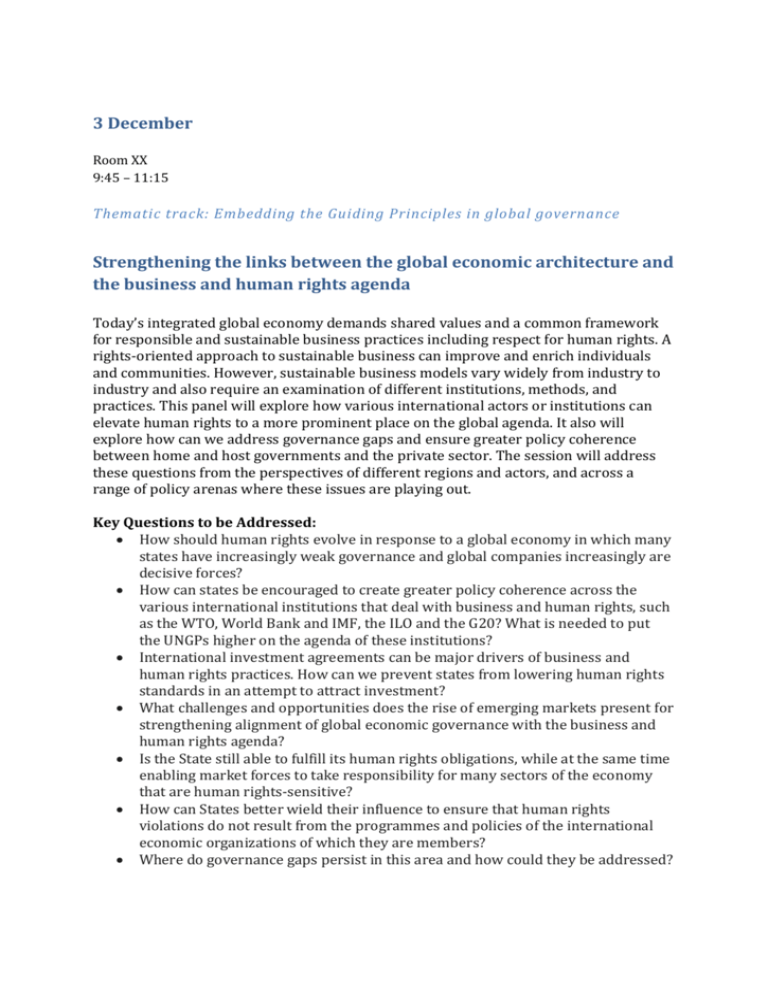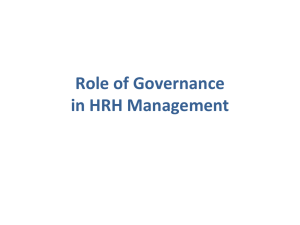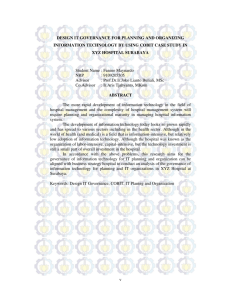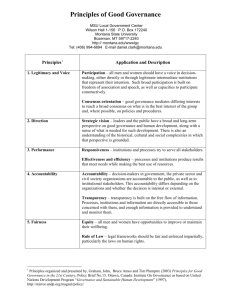3 December
advertisement

3 December Room XX 9:45 – 11:15 Thematic track: Embedding the Guiding Principles in global governance Strengthening the links between the global economic architecture and the business and human rights agenda Today’s integrated global economy demands shared values and a common framework for responsible and sustainable business practices including respect for human rights. A rights-oriented approach to sustainable business can improve and enrich individuals and communities. However, sustainable business models vary widely from industry to industry and also require an examination of different institutions, methods, and practices. This panel will explore how various international actors or institutions can elevate human rights to a more prominent place on the global agenda. It also will explore how can we address governance gaps and ensure greater policy coherence between home and host governments and the private sector. The session will address these questions from the perspectives of different regions and actors, and across a range of policy arenas where these issues are playing out. Key Questions to be Addressed: How should human rights evolve in response to a global economy in which many states have increasingly weak governance and global companies increasingly are decisive forces? How can states be encouraged to create greater policy coherence across the various international institutions that deal with business and human rights, such as the WTO, World Bank and IMF, the ILO and the G20? What is needed to put the UNGPs higher on the agenda of these institutions? International investment agreements can be major drivers of business and human rights practices. How can we prevent states from lowering human rights standards in an attempt to attract investment? What challenges and opportunities does the rise of emerging markets present for strengthening alignment of global economic governance with the business and human rights agenda? Is the State still able to fulfill its human rights obligations, while at the same time enabling market forces to take responsibility for many sectors of the economy that are human rights-sensitive? How can States better wield their influence to ensure that human rights violations do not result from the programmes and policies of the international economic organizations of which they are members? Where do governance gaps persist in this area and how could they be addressed? Moderated by Mike Posner, Professor of Business and Society at NYU’s Stern School of Business; former US Assistant Secretary of State (Moderator) Opening Remarks: Pascal Lamy, Honorary president of Notre Europe - Jacques Delors Institute; former Director-General of the World Trade Organization (WTO) Silvano N. Tomasi, Permanent Observer of the Holy See Panel: Stavros Lambrinidis, European Union's Special Representative for Human Rights Osvaldo L. Gratacós, Vice President, Compliance Advisor Ombudsman (CAO) for IFC and MIGA, World Bank Group Sandra Polaski, Deputy-Director General for Policy, ILO Jorge Abrahão, President, Ethos Institute for Business and Social Responsibility Irene Khan, Director-General, International Development Law Organization Jo Swinson, UK Minister for Employment Relations and Consumer Affairs











